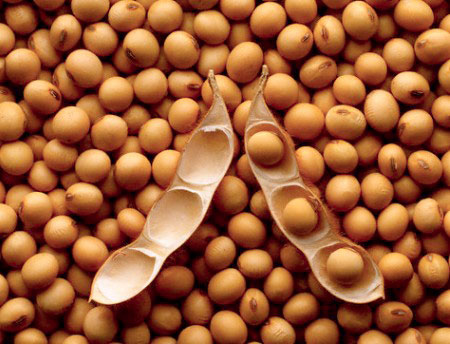Russia claims genetically modified food is toxic
In a recent independent study, Russian scientists found that animals that eat genetically modified soybeans lose fertility.

In the study, hamsters were bred for 2 years with genetically modified soybeans (which are widely used in agriculture), divided into three groups, depending on the level of genetic variation. or less of the beans they eat.
Another group of mice (control group) was fed with pure beans, which had never been genetically modified.
'We selected several groups of hamsters, bred them in pairs in cages and fed them with genetically modified food. We observe their behavior, weight gain and reproduction time , 'said Dr. Alexei Surov of the experiments conducted by the National Genetic Security Association and the Institute of Ecology and Problems. evolution.
At first, people found things very smoothly. However, their offspring have quite serious effects.
Continuing to be fed with diets like their parents, the researchers found that the growth rates of these mice were slower, and later matured.
When collecting children of this generation to pair into pairs (the third generation), the team found that they did not give birth anymore.
'It proves that the third generation of mice has lost its ability to give birth , ' said Dr. Alexei Surov.
The team also discovered another surprise in this third generation of mice: hair growing in their mouths, although it is unclear why.
According to Voice of Russia, experts do not understand why this damage occurs when animals eat genetic modification. According to them, the only way to resolve this is to stop eating the foods above.
Therefore, scientists have proposed to ban the use of genetically modified food until they are tested for biosafety.
The conclusions of Russian experts coincide with the conclusions of colleagues in France and Austria. When proving that genetically modified corn is harmful to mammals, France immediately banned the production and sale of this product.
However, the Russian team also said it was too early to draw conclusions about the dangers of genetically modified food, but more detailed research was needed.
- Genetically modified food in Vietnam ever since?
- DNA from genetically modified food goes straight into the human body
- Things you should know about GMO genetically modified foods
- How to identify GMO genetically modified foods
- Genetically modified salmon in the US is controversial
- Manipulating food security?
- Genetically modified plants and the future in Vietnam
- Using genetically modified foods is prone to cancer
- Legislation of genetically modified corn harmful
- Recognizing 4 genetically modified corn varieties for food
- Countering genetically modified corn causes cancer in mice
- The most common genetically modified foods
 Green tea cleans teeth better than mouthwash?
Green tea cleans teeth better than mouthwash? Death kiss: This is why you should not let anyone kiss your baby's lips
Death kiss: This is why you should not let anyone kiss your baby's lips What is salmonellosis?
What is salmonellosis? Caution should be exercised when using aloe vera through eating and drinking
Caution should be exercised when using aloe vera through eating and drinking